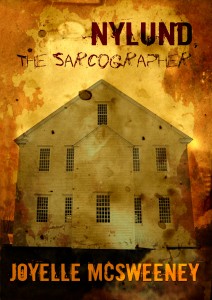At NewPages, Cynthia Reeser reviews Joyelle McSweeney’s Nylund, the Sarcographer.
McSweeney does not marry poetic and prosaic language – rather, she brings them together in a collision of semi-fabulist writing….
The writing forms dips and peaks of prose, descending into obscurity and deliberate misspellings, then arcing up unexpectedly into a concrete, more readily accessible narrative. At times, the ordinary devolves into a poetic metaphysics….
Nylund’s perceptions seem sometimes skewed or inverted. People, things, are expelled, extruded, rather than leaving on their own free will. An egg does not break, but rather, “The yolk exerts itself outwards,” and people do not simply leave a building, instead, “Silverbuttoned and then trenchcoated men emitted from the house.” Empty spaces, negatives, are everywhere, and this too seems part of the nature of sarcography: “On the lintel, numbers had fallen away and left pale eidolons, each empty space punched with a nailhole which asterisked the building.”
Joyelle McSweeney has not only created a unique concept – that of sarcography – she has illustrated it memorably with a masterful redefinition of what constitutes prose, and created a character who is the very embodiment of writing, reminding us of how flexible the narrative form can be.
See also: Nylund, the Sarcographer | Salamandrine: 8 Gothics | Author page for Joyelle McSweeney